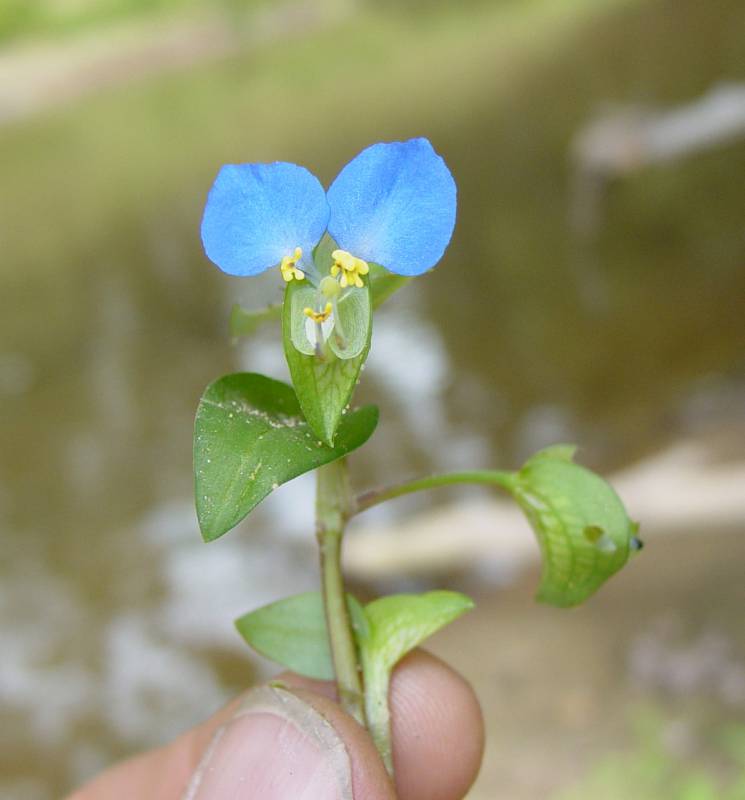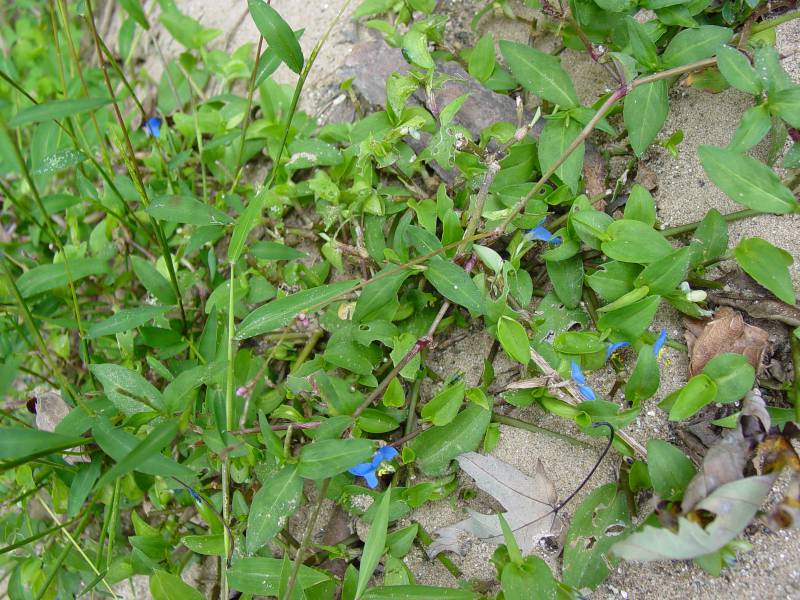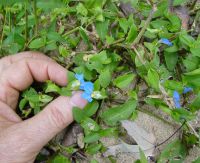Distribution: Widely introduced in eastern United States; occasional in Washington.
Habitat: Weed of waste places, field edges and marshes.
Flowers: July - September
Origin: Introduced
Growth Duration: Annual
Conservation Status: Not of concern
Pollination: Bees, flies
Herbaceous annuals, erect to decumbent, rooting at the lower nodes, the stems diffusely branched.
Leaves alternate, narrowly lanceolate to ovate-elliptic, 5-12 cm. long and 1-4 cm. wide, entire, pointed.
Inflorescence of 1-2 terminal cymes enclosed in a large bract; bract green, whitish basally, with contrasting dark green veins, 1.5-3 cm. long and 0.8-1.3 cm. wide, the margins scabrous, on a peduncle 0.8-3.5 cm. long; flowers usually perfect, the lower petal white, much smaller than the upper 2, which are blue to purplish-blue; stamen 6, the lower three fertile, the upper 3 sterile.
Capsules 2-celled, 4.5-8 mm. long.
Publication: Sp. Pl. 1: 40. 1753.
Commelina willdenowii Kunth
PNW Herbaria: Specimen records of Commelina communis in the Consortium of Pacific Northwest Herbaria database
WA Flora Checklist: Commelina communis checklist entry
OregonFlora: Commelina communis information
E-Flora BC: Commelina communis atlas page
CalPhotos: Commelina communis photos






